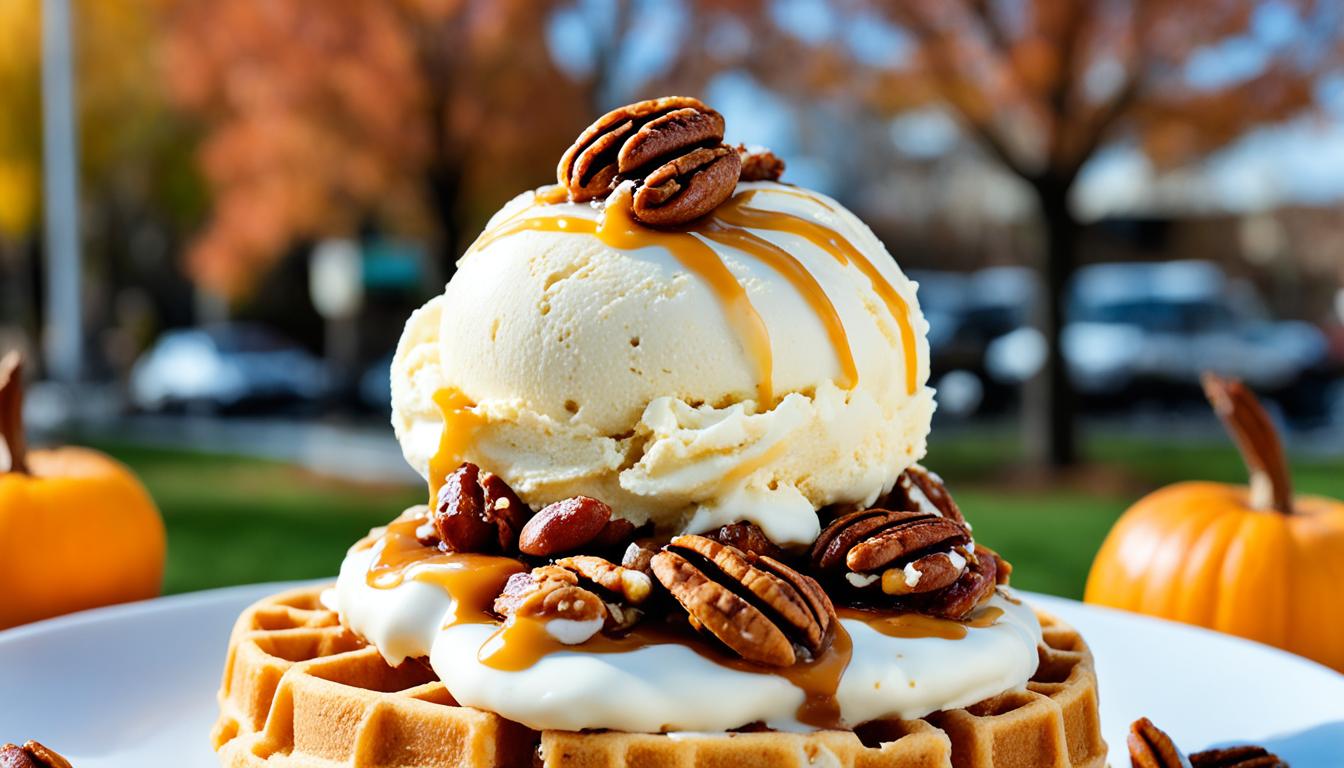You’ve just completed your tooth extraction, and as you sit in the dental chair, a comforting thought flickers through your mind: *Can you eat ice cream after tooth extraction?* This soothing treat can be a beacon of relief during the discomfort that follows dental surgery. The immediate aftermath of an extraction can feel overwhelming, filled with questions about recovery and what you can consume without adding to your pain. But fear not—you’re not alone. Many find themselves wondering about the role of ice cream in the *post-op diet for tooth extraction*. In this article, we’ll explore whether indulging in that creamy delight is truly beneficial for you during your healing journey.
Key Takeaways
- The first 72 hours after tooth extraction are crucial for healing.
- Soft foods are recommended for the next two to three weeks.
- Hot foods should be avoided within 48 hours post-extraction.
- Ice cream is useful for soothing gums and reducing swelling.
- Mindful eating is essential to avoid complications like dry socket.
Understanding Tooth Extraction
Tooth extraction is often essential for various dental issues such as tooth decay, overcrowding, or fractured teeth. This procedure requires careful handling, as it can result in swelling and discomfort during the healing process. After the tooth is pulled, knowing what to eat after getting a tooth pulled becomes crucial for a smooth recovery.
Doctors typically recommend a diet of soft foods to help minimize pain and facilitate healing. You may want to consider tooth extraction meal ideas that include options like soup, yogurt, and mashed potatoes. Consuming ice cream shortly after the extraction tends to aid recovery, acting as a cold compress to soothe the area while reducing inflammation.
While ice cream is a favorable choice, it is essential to avoid very cold varieties that could trigger sensitivity. Instead, choose softer flavors that comfort without causing additional pain. Remember, maintaining good oral hygiene is vital post-extraction. Avoid reckless actions like spitting for the first 24 hours to ensure optimal healing.

The Healing Process After an Extraction
The healing process begins right after a tooth extraction. Blood clot formation plays a significant role in recovery. This clot protects the extraction site while healing occurs. Avoiding disturbance to this clot is crucial, as complications such as dry socket can arise, prolonging your healing and causing discomfort.
During the first hour or two following the procedure, it’s advisable to refrain from consuming any food or beverages. This allows the blood clot to properly form and stabilize. Within the first 24 hours, a recovery diet after tooth extraction emphasizes soft foods, ensuring you do not disturb the extraction site. Foods that require minimal chewing promote a smoother recovery.

Days 2 to 3 post-extraction can introduce cold, soft foods like ice cream if you experience minimal pain or bleeding. Start with small portions and avoid excessively cold items to prevent sensitivity. Many find that cool foods offer temporary relief, numbing the area and helping reduce swelling.
For best results, carefully adhere to your dentist’s post-operative care instructions. These guidelines will help personalize your recovery journey, ensuring a successful and comfortable healing process. Remember that recovery timelines can vary based on individual circumstances, type of extraction, and overall oral health.
Why Ice Cream is Recommended After a Tooth Extraction
Ice cream after tooth extraction stands out as a soothing option during recovery. Its cold temperature provides a numbing effect, which can significantly reduce swelling and pain. The soft, creamy texture of ice cream allows for easy consumption without the need for chewing, minimizing the risk of irritating the extraction site.
Many individuals find comfort in enjoying a favorite treat during recovery. This psychological boost cannot be underestimated, especially when you’re navigating the discomfort after tooth removal. Ice cream is often regarded as one of the best foods after tooth removal due to its ability to cool the mouth and ease inflammation.

While indulging in ice cream, it is wise to be mindful of specific flavors and ingredients. Choosing options that are low in sugar can help in maintaining overall health, as excessive sugar can lead to complications during healing. Furthermore, alternatives like sorbet can be considered if you’re looking for a dairy-free option. In addition, it’s important to watch out for artificial sweeteners, which may not always be the healthiest substitute. Some of the best ice cream options for diabetics are those made with natural sweeteners like stevia or monk fruit, which have minimal impact on blood sugar levels. Always consult with a healthcare professional to ensure the choices align with your dietary needs.
In addition to ice cream, complementing your recovery diet with other soft foods is essential. Foods like mashed potatoes, soups, and soft fruits help provide vital nutrients that aid the healing process. Always consult with your dentist for personalized recommendations regarding what to eat for a smoother recovery process.
| Food Type | Benefits |
|---|---|
| Ice Cream | Soothes pain, cold effect reduces swelling |
| Mashed Potatoes | Soft texture, easy to eat, provides carbohydrates |
| Soups | Nourishing, comfortable temperature, easy to consume |
| Soft Fruits (e.g., bananas) | Rich in vitamins, gentle on the mouth |
| Smoothies | Hydrating, customizable for nutrient needs |
Can You Eat Ice Cream After Tooth Extraction?
Eating ice cream after tooth extraction can be a soothing and enjoyable part of your recovery. Understanding how and when to enjoy this delightful treat is crucial for optimal healing. Ice cream provides several advantages that make it a recommended option during your recovery period.
The benefits of ice cream for recovery
Ice cream after tooth extraction serves multiple purposes that aid in recovery:
- Soothing Effect: The cold temperature can numb the area, providing relief from pain and discomfort.
- Combating Swelling: Cold treats help reduce inflammation around the extraction site.
- Enjoyable Treat: It can serve as a pleasant distraction during what might be a challenging time for your mouth.
When to start eating ice cream
So, can you eat ice cream after tooth extraction? The answer is yes, but timing is essential. Typically, you should wait about 48 hours post-extraction before introducing ice cream into your diet. This waiting period allows any anesthetics to wear off and reduces the risk of disrupting the healing process. It’s best to choose softer varieties, such as soft-serve or slightly melted ice cream, that won’t irritate the extraction site. Opt for flavors like vanilla that are less likely to cause any issues during recovery.

Remember, consulting with your dentist for personalized guidance can ensure you make the best choices for your recovery.
Cold vs. Hot Foods After Extraction
When you undergo a tooth extraction, the temperature of the foods you consume becomes crucial for your comfort and healing. Cold foods, such as ice cream, offer soothing relief, particularly in the first few days after the procedure. These items can help alleviate pain and reduce swelling, making them an appealing option for those on the road to recovery. Choosing soft foods after oral surgery eases the stress on your gums, allowing for a more comfortable eating experience.
On the contrary, hot foods, including soup and tea, should be approached with caution. Consuming them at room temperature is advisable. Hot foods may irritate sensitive gums and potentially increase blood flow, which may lead to bleeding and complications in the days following the procedure. By prioritizing the right temperature alongside soft textures, you create an ideal environment for healing.
Here’s a comparison of food options:
| Food Type | Temperature Recommendation | Examples |
|---|---|---|
| Cold Foods | Cold or Lukewarm | Ice cream, smoothies, yogurt |
| Hot Foods | Room Temperature | Soup (cooled), oatmeal (wait to cool) |
| Soft Foods | Varies; ideally soft and easy to chew | Mashed potatoes, cottage cheese, pudding |
Emphasizing soft foods after oral surgery not only supports your recovery but also enhances your nutritional intake during this sensitive time. For optimal healing, focus on easy-to-consume options that provide essential nutrients without putting pressure on your gums.

Best Foods to Eat Following Tooth Extraction
After tooth extraction, your diet plays a crucial role in your recovery. Selecting the right foods can enhance your healing process while minimizing discomfort. Focus on soft foods after oral surgery that provide necessary nutrients to support your body during this time.
Soft food suggestions for your recovery
The following soft foods are excellent choices for your post-extraction diet:
- Yogurt
- Pudding
- Mashed potatoes
- Smoothies (avoid straws)
- Soup
- Applesauce
- Scrambled eggs
Importance of nutritious choices
Making nutritious choices after extraction is vital for your health. A well-balanced diet can:
- Speed up recovery
- Reduce the risk of complications
- Provide energy for healing
Including options like yogurt with granola or nutrient-dense smoothies can further support your recovery. Hydration is equally important, so ensure you drink plenty of water to remain hydrated.

| Food Type | Nutritional Benefits |
|---|---|
| Yogurt | Rich in protein and probiotics for gut health |
| Pudding | Soft texture, easy on the mouth |
| Mashed Potatoes | Good source of carbohydrates for energy |
| Smoothies | Can be made with fruits and vegetables, hydrating and nutritious |
| Soup | Warm and soothing, can include various nutrients |
Guidelines for Eating Ice Cream Post-Extraction
After tooth extraction, indulging in ice cream can bring comfort during the recovery process. Keeping in mind the right choices and methods of consumption will support your healing journey. This part focuses on selecting the right type of ice cream and safe ways to enjoy it.
Choosing the right type of ice cream
Selecting suitable ice cream can positively influence your recovery diet after tooth extraction. Aim for the following:
- Plain flavors such as vanilla or other soft varieties.
- Soft-serve or slightly melted options to ease consumption.
- Products without crunchy additions like nuts, chocolate chips, or hard pieces.
- Sugar-free or low-sugar alternatives to minimize infection risk.
How to consume ice cream safely
Consuming ice cream safely is paramount to avoiding complications during your healing process. Follow these tips:
- Use a spoon rather than a straw or cone to prevent pressure on the extraction site.
- Start eating ice cream 48 hours post-extraction, once initial swelling has subsided.
- Embrace gentle bites to avoid disturbing the area.
- Stay mindful of any increased sensitivity; consult your dentist for personalized advice.

Potential Risks of Eating Ice Cream After Tooth Extraction
While ice cream after tooth extraction can provide temporary relief and comfort, you should be aware of potential risks associated with its consumption. Paying attention to your dietary choices during recovery is crucial.
Impact of sugar content on healing
High sugar content in many ice creams could promote bacterial growth, increasing the risk of infection at the extraction site. Consumption of sugary treats may also delay the healing process by hindering blood clot formation. Dentists often recommend avoiding high-sugar options, especially during the first few days post-extraction, to minimize potential complications.
Understanding temperature sensitivity
Post-extraction, sensitivity to cold can make eating ice cream a bit uncomfortable. It may cause pain at the extraction site if the ice cream is too cold. Letting it soften slightly before eating can help reduce discomfort. Choosing dairy-free alternatives can also be beneficial, as traditional dairy products might introduce bacteria or irritate the sensitive area.

Taking these factors into account can help you enjoy your recovery while minimizing risks. Consider consulting with your dentist for tailored advice on your post-extraction diet. Keeping your healing process in mind, balance enjoyment with caution.
Alternatives to Ice Cream After Tooth Extraction
After a tooth extraction, it’s important to consider a variety of comforting food options that promote healing. Ice cream is a popular choice due to its soothing coldness, but if you are looking for alternatives to ice cream, there are many delicious and nutritious soft foods available. Choosing the right tooth extraction meal ideas can enhance your recovery experience.
Other soothing soft foods
When you want to avoid ice cream while still enjoying soft foods, consider these options:
- Yogurt: Creamy and high in protein, yogurt is easy to eat and can aid in recovery.
- Applesauce: Smooth and sweet, applesauce is a healthy choice that doesn’t require chewing.
- Pudding: Rich in flavor, pudding offers a comforting consistency that’s gentle on healing gums.
- Smoothies: You can customize these with a variety of ingredients, including Greek yogurt for added protein.
- Instant Oats: These provide nutrition and a soft texture, making them easier to consume than traditional oats.
- Cottage Cheese: Soft and rich in protein, it’s an excellent choice for recovery.
- Hummus: This spread is packed with healthy fats and vitamins that are beneficial after an extraction.
- Soups: Broth-based soups, such as chicken noodle, can provide nourishment and hydration.
Pay attention to portion control and meal frequency during your recovery. Eating smaller amounts throughout the day might help avoid discomfort while ensuring you receive essential nutrients. Remember to maintain good hygiene practices to prevent infections and ensure a smooth recovery.
| Food Item | Benefits | Texture |
|---|---|---|
| Yogurt | High in protein | Smooth |
| Applesauce | Provides fiber and vitamins | Thin and smooth |
| Pudding | Comforting dessert | Creamy |
| Smoothies | Nutrient-rich and versatile | Smooth |
| Hummus | High in healthy fats | Spreadable |
| Instant Oats | Good source of carbohydrates | Soft |
Exploring these options as tooth extraction meal ideas will provide comfort and nutrition while you heal. With the right choices, you can enhance your recovery experience and enjoy satisfying meals that support your healing journey.

Conclusion
In summary, you can eat ice cream after tooth extraction, and it can be a comforting part of your recovery diet after tooth extraction. Not only does ice cream help soothe discomfort, but it can also reduce swelling in the initial healing phase. It’s essential, however, to keep a balanced perspective on your choices. While enjoying this treat, moderation is key to avoid any potential sugar overload that might hinder your healing process.
As you navigate your recovery following a tooth extraction, it’s wise to monitor specific factors. Dairy products like ice cream may slow healing or increase the risk of infection if overconsumed, so it’s advisable to consult with your dentist for personalized guidance. By following the recommended dietary guidelines, you can indulge in your favorite ice cream flavors while ensuring your recovery remains on track.
Ultimately, being mindful of your body’s reactions and adhering to dentist recommendations will lead to a smoother healing experience. Remember, after dental surgery, it is crucial to prioritize good oral hygiene and avoid crunchy or chewy foods that could disrupt your recovery process.










